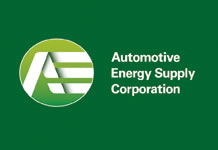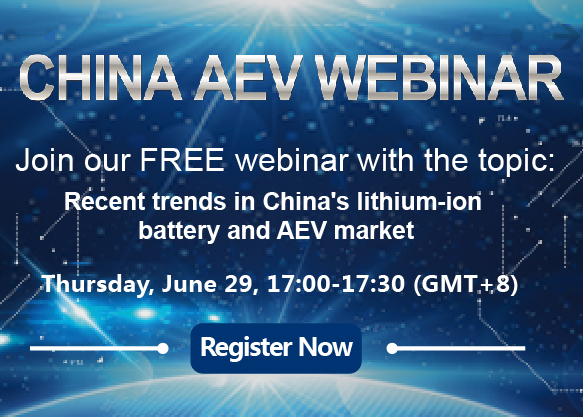It
seems clear now, that Nissan has found the buyer of its 51% in lithium-ion
producer AESC in China’s investment firm GSR Capital. However, the likely move
of the facilities and business into China is facing some harsh challenges,
which the buyer has to overcome.

Since
2016, car manufacturer Nissan has announced to sell its 51% share of lithium-ion battery manufacturer Automotive Energy Supply Corporation (AESC).
The possession of an internal battery manufacturer does not allow for the
flexibility to buy cheaper batteries from third party suppliers. Hence, the
company made the decision to sell all of its 51% share in the subsidiary.
Considering
that Nissan has constantly developed stronger ties with the lithium-ion battery
giant LG Chem over the last few years, the announcement to sell its majority
share of AESC seems not very surprising at all. After all, the company
obviously grants a better quality to the batteries of LG Chem that its
subsidiary. To be noticed, the establishment of AESC was back in 2007 when
battery suppliers for electric cars have been very rare.
Currently,
Panasonic is one of the three largest lithium-ion battery suppliers for the
worldwide AEV industry, having electric car pioneer Tesla as a loyal client.
The remaining two big players are AESC and Korean LG Chem, which are selling
their batteries to well-known brands like Audi, Cadillac, Chevrolet, Ford,
Hyundai, Renault, Smart, Volkswagen, and Volvo.
In
May 2017, it became likely that China’s GSR Capital will buy the 51% share in
an investment of USD1 billion, according to Nikkei Asian Review. The
transaction will be supported by the Yangtze River Industry Fund, which is
established in China’s Hubei province and announced to back up the deal with
more than USD200 million. China is planning to produce the needed lithium-ion
batteries for electric vehicles in the own country and a company like AESC is a
great target for it, as the battery technology is among the best ones.

The
deal is not secured yet, but the talks are getting advanced and serious, which
is a strong indicator that both parties will be agreeing soon on the deal.
According to insiders, the parties aim to announce an agreement soon.
According
to market intelligence firm CCM, GSR Capital plans to build more facilities in
China’s Hubei province, to function as an independent supplier of lithium-ion
batteries in China’s booming market. However, this step will get along many
challenges the company has to solve before a successful business can be
expected.
GSR
Ventures is planning this acquisition for the sake of capital accumulation and
hopes to enjoy high future profits from AESC's sales in the Chinese and
international markets or even share transfers.
However,
according to CCM, in the short run, it will be difficult for AESC to earn
profits in Chinese power battery market. There are three subjects that
represent the main challenges.

First
of all, the company is facing an enormous cost pressure. At present, the
development of the Japanese lithium manganite battery industry is caused by the
improved manufacturing and supporting facilities in the country. Hence, if AESC
wants to produce equally quality products in China, it has to relocate its
entire production system, including equipment, technology and raw materials.
That is very difficult to accomplish. Moreover, although now AESC produces
around 1.5GWh-2GWh batteries yearly, the production costs remain high because
of its soft pack technology and limited vehicle types. Therefore, whether AESC
can reduce costs after moving to China is still unclear.
Secondly,
the is a lack of adequate clients for the company. The current AEV subsidy
policy in China is connected with the energy density of batteries, and ternary
batteries with higher energy density are preferred in the alternative energy
passenger vehicle industry. As for the alternative energy bus market, domestic
lithium manganite battery enterprises like CITIC Guoan Mengguli, Microvast, and
Huizhou Yipeng New Energy have taken the majority of market shares already.
Henceforth, ASEC lacks sufficient clients in China. To make matters more
difficult, AESC’s battery shipment volume in overseas markets are declining. In
the short term, AESC’s production capacity cannot satisfy the demand to occupy
more market share in China.
Thirdly,
GSR Ventures and AESC might develop an argument about the dominance in the
subsidiary. Although GSR Ventures will hold a 51% majority stake in AESC, it is
believed to just learn the current technology from AESC, but may not achieve
total dominance in the subsidiary. In the future, arguments on the main course
in AESC might be a problem.
About the parties
AESC
was founded in 2007 as a subsidiary of car manufacturer Nissan Motor as well as
Japan’s NEX Corporation and NEC Tokin. The shares of the company have been
hereby divided into 51% for Nissan, 42% for NEC and 7% for NEC Tokin. The
current business takes place in Japan’s Kanagawa province and reached the
status of the second largest electric battery manufacturer worldwide, after
Panasonic. The market share was 21%. Popular cars that are using batteries from
this enterprise are Nissan Leaf or Renault ZoeR400.
GSR
Capital is a Chinese investment and private equity firm which is focusing on
sectors like wireless internet, clean energy, and healthcare. Currently, the
enterprise has more than USD2 billion under its management.
About CCM
CCM is the leading market intelligence provider for China’s agriculture, chemicals,
food & ingredients and life science markets.
Do
you want to find out more about the battery and AEV market in China? Try our Newsletters and Industrial Reports or join our professional online platform today and get insights in Reports, Newsletter, and Market Data at one place.
For
more trade information of batteries, including Import and Export analysis as
well as Manufacturer to Buyer Tracking, contact our experts in trade analysis to get your answers today.